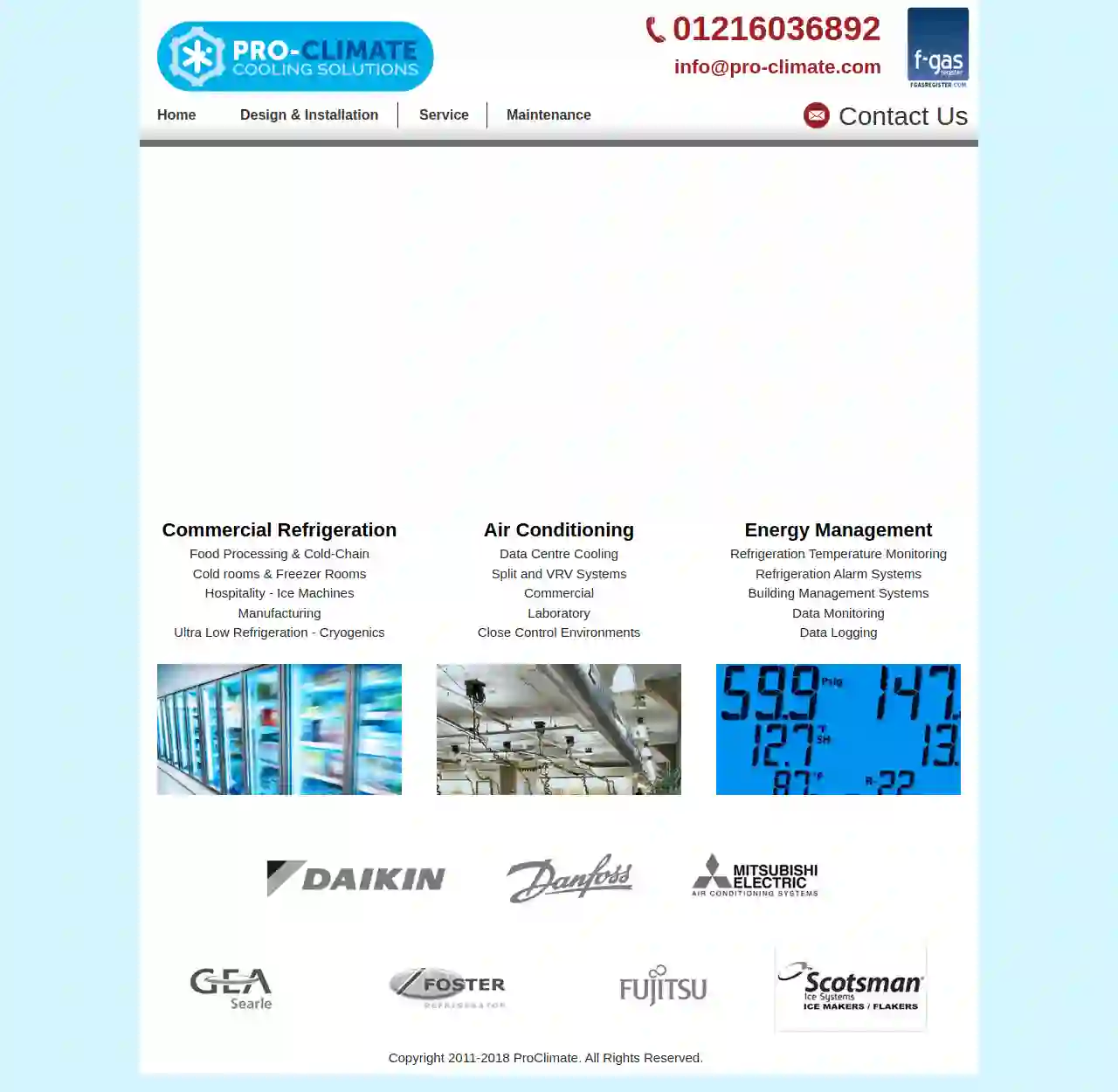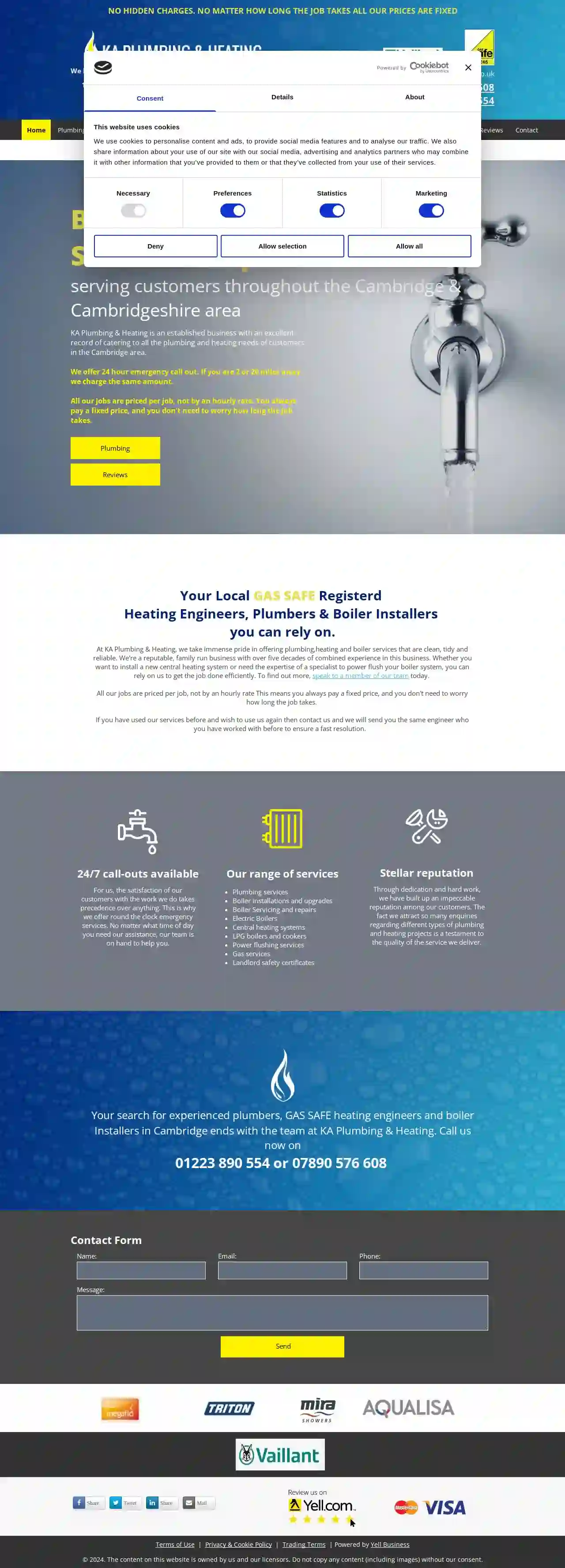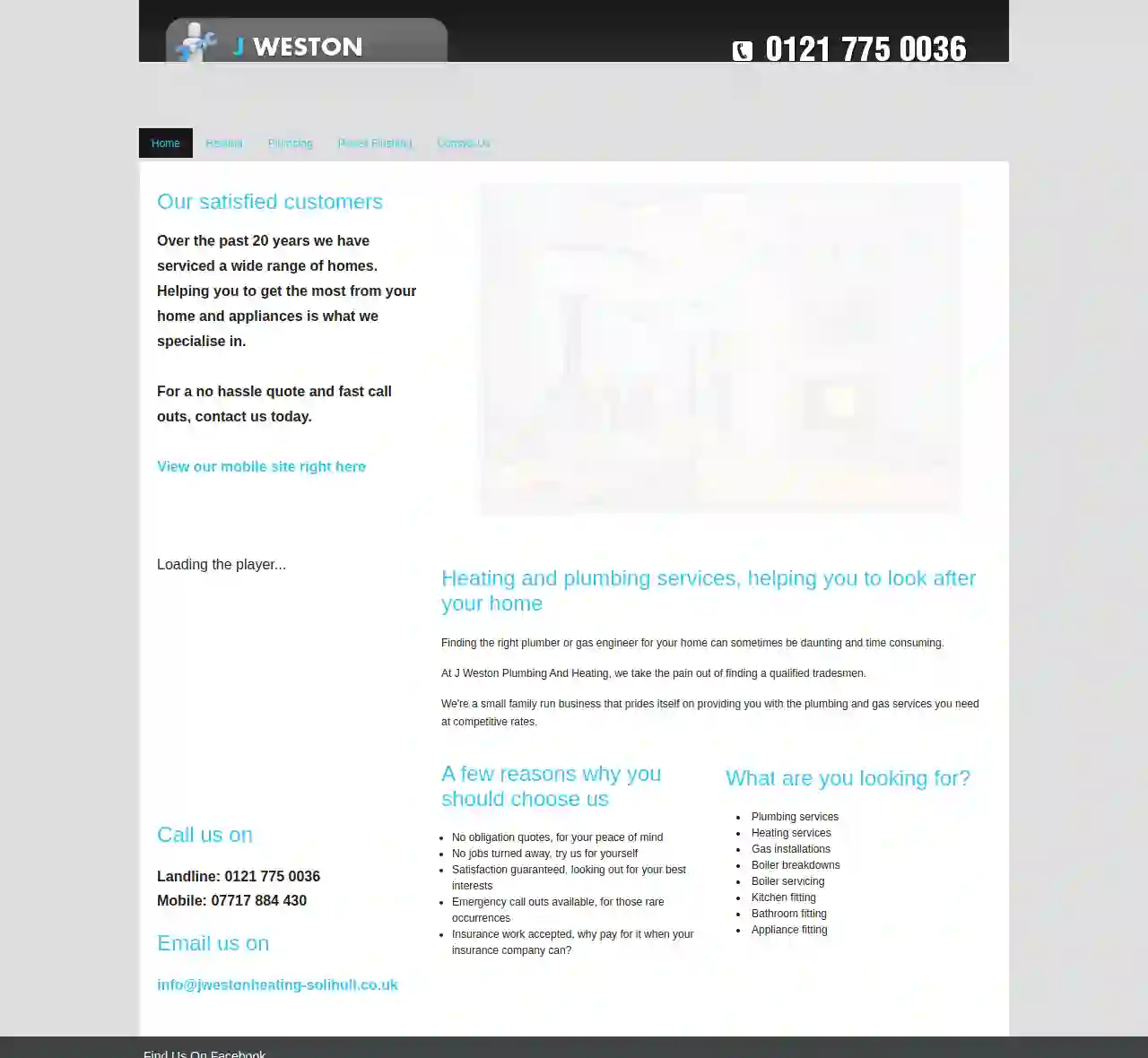Emergency HVAC Knowle
Best Emergency Furnace Repair in Knowle
Receive multiple Emergency Furnace Repair quotes for your project today! Compare profiles, reviews, accreditations, portfolio, etc... and choose the best deal.

Status Heating Limited
4.5265 reviewsBrook House, 153 Newborough Road, Solihull, B90 2HE, GBFor over 50 years Status Heating has provided unrivalled excellence in gas central heating installation, service and repair for domestic customers throughout the Central Region. We also provide services for Private Landlords and Letting Agents.
- Services
- Why Us?
- Accreditations
- Gallery
Get Quote
Pro-Climate Ltd
52 reviewsSolihull, GBProClimate is a leading provider of commercial refrigeration and air conditioning solutions. With over 20 years of experience, we offer a comprehensive range of services, including design, installation, maintenance, and repair. Our team of highly skilled engineers and technicians is dedicated to providing our clients with the highest quality service and support. We are committed to delivering innovative and energy-efficient solutions that meet the unique needs of each client. ProClimate serves a wide range of industries, including food processing, hospitality, manufacturing, and data centers. We have a proven track record of success in delivering projects on time and within budget. Our commitment to excellence has earned us a reputation as a trusted partner for businesses of all sizes. Contact us today to learn more about how ProClimate can help you achieve your business goals.
- Services
- Why Us?
- Gallery
Get Quote
Go Assist - Appliance Repairs, Plumbers, Boiler Engineers & Electricians
51 reviewsBournemouth, BH8 8EY, Enterprise House, 21 Oxford Road, B1 2AA, GBAt Go Assist, we provide a one-stop solution for homeowners and landlords, offering services regarding plumbing, electrical, appliances, boilers, locksmiths and pest control. Whether your domestic appliance is faulty, boiler has broken down, fuse box has tripped, or tap is leaking – you have come to the right place. We provide quality repairs for home breakdowns from a team of reliable, vetted engineers. We will always aim to get out to you the same day, boasting an impressive engineer response time and first-time fix rate.
- Services
- Why Us?
- Accreditations
- Gallery
Get Quote
Heatxforce Limited - Heat Transfer Package Experts
52 reviewsShirley, Unit 20, Monkspath Business Park, Solihull, B90 4NZ, GB- Services
- Why Us?
- Accreditations
- Gallery
Get Quote
K A Plumbing & Heating
41 reviews29 Barley Way, Cambridge, CB21 4YN, GBKA Plumbing & Heating is a family run business with over five decades of combined experience in the plumbing and heating industry. We pride ourselves on offering clean, tidy and reliable services to customers throughout the Cambridge area. Whether you need a new central heating system installed, or require the expertise of a specialist to power flush your boiler system, we are here to help. We offer a 24 hour emergency call out service and all our jobs are priced per job, not by an hourly rate. This means you always pay a fixed price and don't need to worry how long the job takes. We are committed to providing a high level of customer satisfaction and strive to build long-lasting relationships with our clients.
- Services
- Why Us?
- Accreditations
- Our Team
- Testimonials
- Gallery
Get Quote
Mid-Tech Services Ltd
51 reviewsSolihull, GBMid-Tech Services is a leading provider of HVAC, mechanical, electrical, and building fabric services to the retail, industrial, commercial, and public & private sectors. We deliver a wide range of services, including planned preventative and reactive maintenance, refurbishment and upgrades, and service, repair, and installation. Our team is committed to finding cost-effective solutions and exceeding client expectations. We have a proven track record of providing excellent response times and quality services to our clients.
- Services
- Why Us?
- Accreditations
- Our Team
- Testimonials
- Gallery
Get Quote
Jet Environmental Systems Ltd
52 reviewsSolihull, GBJet Environmental is a technically focussed environmentally aware designer & supplier of large scale HVAC systems. Our best in class engineers design, manufacture, install and maintain bespoke heating, ventilation and cooling systems in industrial, warehouse and commercial buildings. Customers choose Jet Environmental because we create systems specifically for their needs; be that product, compliance, comfort, size or complexity. Our systems provide close tolerance temperature and humidity control in some of the largest logistics and pharmaceutical warehouses, retail stores, museums, leisure facilities and production sites for many of the UK's leading businesses. Our mission is to continuously develop energy efficient solutions using the latest techniques and environmentally friendly refrigerants.
- Services
- Why Us?
- Testimonials
- Gallery
Get Quote
Heating Force
51 reviewsLondon, UK, 123 Main Street, SW1A 1AA, GBHeatingForce is a website that provides information and guides on boilers, heating systems, and related topics. The website aims to simplify the process of choosing and installing a new boiler, as well as providing guidance on boiler maintenance and repair. The website also offers reviews of various boiler models and installation companies, as well as calculators and other tools to help users make informed decisions. The website is reader-supported and earns an affiliate commission when users purchase products through links on the site.
- Services
- Why Us?
- Accreditations
- Our Team
- Testimonials
- Gallery
Get Quote
Home Climate Solutions
52 reviewsShakespeare Drive, Birmingham, B90 2AL, GBHome Climate Solutions is a trusted name in the West Midlands for all your plumbing, heating, and gas needs. Led by Chris Davies, a Gas Safe Registered Engineer with over 11 years of experience, we provide a comprehensive range of services, from boiler installations and repairs to full bathroom renovations. We pride ourselves on delivering exceptional quality and service, always working within a reasonable budget and timeframe. Whether you need a simple repair or a complete overhaul, Chris is approachable, flexible, and dedicated to meeting your specific requirements. Based in Shirley, we serve clients throughout the West Midlands, including Solihull, Birmingham, Shirley, Coventry, Knowle, Dorridge, and Warwick. Contact us today for a free quote and experience the Home Climate Solutions difference.
- Services
- Why Us?
- Our Team
- Testimonials
- Gallery
Get Quote
J Weston Heating
4.37 reviews134 Valley Road, Solihull, B92 9AY, GBOver the past 20 years we have serviced a wide range of homes. Helping you to get the most from your home and appliances is what we specialise in.For a no hassle quote and fast call outs, contact us today. Finding the right plumber or gas engineer for your home can sometimes be daunting and time consuming. At J Weston Plumbing And Heating, we take the pain out of finding a qualified tradesmen. We're a small family run business that prides itself on providing you with the plumbing and gas services you need at competitive rates. A few reasons why you should choose us No obligation quotes, for your peace of mind No jobs turned away, try us for yourself Satisfaction guaranteed, looking out for your best interests Emergency call outs available, for those rare occurrences Insurance work accepted, why pay for it when your insurance company can?
- Services
- Why Us?
- Gallery
Get Quote
Over 12,692+ HVAC Contractors in our network
Our HVAC contractors operate in Knowle & surroundings!
HVACCompaniesHub has curated and vetted the Best HVAC Contractors near Knowle. Find the most reliable contractor today.
Frequently Asked Questions About Emergency HVAC Services
- MERV Rating: The Minimum Efficiency Reporting Value (MERV) indicates the filter's ability to trap particles. Higher MERV ratings mean better filtration.
- Filter Size: Make sure you select the correct size filter for your HVAC unit.
- Filter Type: Different types of filters are available, including pleated filters, HEPA filters, and electrostatic filters.
- Your Needs: Consider your indoor air quality needs. If you have allergies or pets, a higher MERV filter may be beneficial.
- Raise Your Thermostat: Set your thermostat to a higher temperature when you’re away. Consider using a programmable or smart thermostat.
- Use Fans: Fans can circulate air and make you feel cooler, even at a higher thermostat setting.
- Close Window Coverings: Keep curtains or blinds closed during the day to block out sunlight.
- Limit Heat-Generating Activities: Avoid running heat-producing appliances (ovens, dryers) during the hottest parts of the day.
- Annual AC Maintenance: Schedule yearly maintenance for your air conditioner to ensure it's running efficiently.
- Plant Shade Trees: Planting trees around your home can provide natural shade and reduce heat gain.
How do I choose the right HVAC filter?
How can I cool my home efficiently?
What is a smart thermostat, and how can it save me money?
What is carbon monoxide, and how can it affect my HVAC system?
How do I choose the right HVAC filter?
- MERV Rating: The Minimum Efficiency Reporting Value (MERV) indicates the filter's ability to trap particles. Higher MERV ratings mean better filtration.
- Filter Size: Make sure you select the correct size filter for your HVAC unit.
- Filter Type: Different types of filters are available, including pleated filters, HEPA filters, and electrostatic filters.
- Your Needs: Consider your indoor air quality needs. If you have allergies or pets, a higher MERV filter may be beneficial.
How can I cool my home efficiently?
- Raise Your Thermostat: Set your thermostat to a higher temperature when you’re away. Consider using a programmable or smart thermostat.
- Use Fans: Fans can circulate air and make you feel cooler, allowing you to raise the thermostat a few degrees.
- Close Window Coverings: Keep curtains or blinds closed during the day to block out sunlight.
- Limit Heat-Generating Activities: Avoid running heat-producing appliances (ovens, dryers) during the hottest parts of the day.
- Annual AC Maintenance: Schedule yearly maintenance for your air conditioner to ensure it's running efficiently.
- Plant Shade Trees: Planting trees around your home can provide natural shade and reduce heat gain.